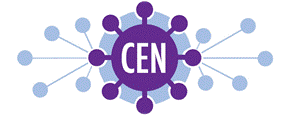The Community Ethics Network (CEN) was formally launched in fall 2005, based on research into identifying major ethical issues faced by front line staff in community settings began in 2000.
2022
In 2022, CEN incorporated under the federal Not-for-Profit Corporations Act. Our governance structure was modified to include a Board of Directors. Our purpose and vision remain focused on supporting ethical care – for everyone, everywhere, every time.
2000
Human Resources Development Canada (HRDC) partnered with the former Toronto Community Care Access Centre (CCAC), for a study that included looking into the perceptions of ethical issues facing front-line workers and the capacity to address these issues
A key finding of this study was:
- that community health care workers often struggle with the practice- based ethical issues they encounter in the community, especially because they work independently and often in isolation
One of the key recommendations was:
- to address the need for developing cross-sectorial supports to assist staff with practice-based ethical issues.
The former Toronto Community Care Access Centre (now part of the Toronto Central Local Health Integration Network) sponsored a collaborative effort with multiple community health, and support organizations to promote a common approach for ethical decision-making.
2003
The “Code of Ethics for the Community Health and Support Sector” was established
2004
12 community health and support service agencies from the Toronto area drafted and piloted a common approach to address ethical dilemmas in the community
2005
The Community Ethics Network was launched, with the 12 founding member organizations agreeing to focus collectively on ethical issues in community health care.
Since then, the Network has succeeded in:
- developing and implementing the Community Code of Ethics and Community Ethics Toolkit,
- building ethics capacity through specialized educational sessions for its members,
- producing a quarterly community ethics newsletter.
In 2015, the CEN and its members were invited to participate in an advisory focus group to help reform consent, capacity, and substitute decision-making laws in Ontario.
Today, the CEN continues to help community health care and support service organizations build capacity for ethical decision-making through continued education, research and development of further tools such as educational models and peer review processes
